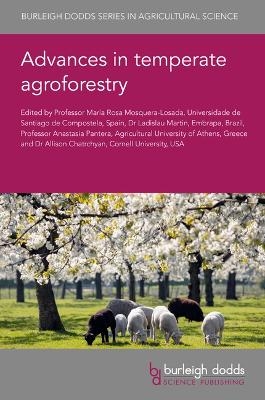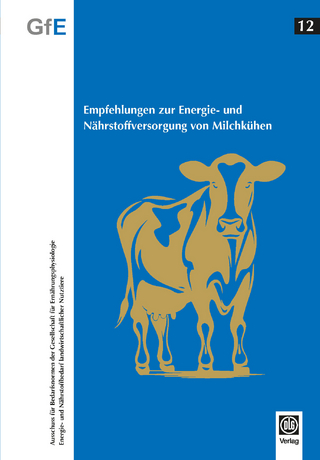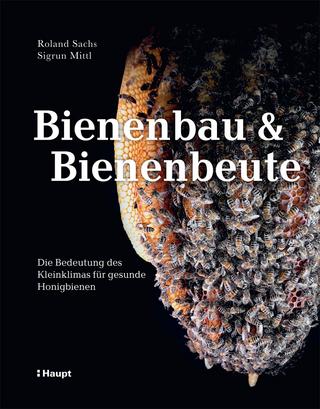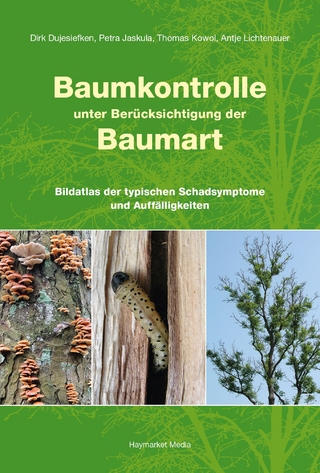
Advances in Temperate Agroforestry
Burleigh Dodds Science Publishing Limited (Verlag)
978-1-80146-719-3 (ISBN)
- Noch nicht erschienen (ca. April 2025)
- Versandkostenfrei innerhalb Deutschlands
- Auch auf Rechnung
- Verfügbarkeit in der Filiale vor Ort prüfen
- Artikel merken
With growing concern about the environmental impact of agriculture and its consequent contribution to climate change, there is an increasing interest in the implementation of agroecological approaches to achieve a more sustainable agriculture. Agroforestry is one area of research which has gained significant momentum in recent years.
Advances in temperate agroforestry reviews key recent advances in measuring and valuing how agroforestry systems promote biodiversity and deliver ecosystem services such as soil carbon sequestration. The book also considers the development of different silvopastoral and silvoarable practices, including integrating trees and livestock in timber forests, orchard and pasture systems, as well as alley cropping and intercropping.
Dr María Rosa Mosquera-Losada is Distinguished Professor at the University of Santiago de Compostela, Spain. Professor Mosquera-Losada is President of the Spanish Agroforestry Association (AGFE) and a former President of the European Agroforestry Federation (EURAF). She is also Coordinator of the EU-funded Agroforestry Innovation Networks (AFINET) project, a Policy Work Package Leader for the EU project AGFORWARD (Agroforestry that will Advance Rural Development) and Data Knowledge Work Package Leader for the EU project EURAKNOS (Connecting Thematic Networks as Knowledge Reservoirs: towards a European Agricultural Knowledge Innovation Open Source System) and is also co-Chair of the Croplands Working Group of the Global Research Alliance and of the Global Alliance for Climate Smart Agriculture (FAO). Dr Ladislau Martin is a Senior Scientist Researcher at Embrapa, Brazil. Dr Martin is a co-Chair of the Croplands Research Group of the Global Alliance for Greenhouse Gas Research in Agriculture. Professor Anastasia Pantera is Vice-President of the Department of Forestry and Natural Environment Management at the Agricultural University of Athens, Greece. Professor Pantera is an Associate Editor of Agroforestry Systems. Dr Allison Morrill Chatrchyan is a Senior Research Associate at Cornell University, USA. Dr Chatrchyan leads the Climate Smart Farming and Climate Smart Solutions Programs in the College of Agriculture and Life Sciences. Dr. Oelbermann earned a Ph.D. in Soil Science from the University of Guelph and pursued post-doctoral studies at Cornell University. Currently, she holds the position of Professor in the School of Environment, Resources and Sustainability at the University of Waterloo in Canada. Her research revolves around the study of carbon and nitrogen transformations in complex agroecosystems, encompassing a wide range of environments from sub-polar to tropical regions. Specifically, she focuses on understanding the functions and processes that govern these transformations in various agricultural systems, such as agroforestry systems and cereal-legume intercrops.
Part 1 Measuring and valuing agroforestry ecosystem services
1.Assessing the benefits of temperate agroforestry in promoting soil health: Lukas Beule, Julius Kühn-Institut, Germany;
2.Assessing the benefits of temperate agroforestry in enhancing carbon sequestration: Maren Oelbermann, University of Waterloo, Canada;
3.Ecosystem accounting to value ecosystem services from agroforestry: Anthony O'Grady, CSIRO, Australia;
Part 2 Technologies
4.Types of silvopastoral system: an overview: Jim McAdam, formerly AFI/Queen's University Belfast, UK;
5.Types of silvopastoral system: forests/timber plantations with pasture grazing for livestock: Marina Castro, IPB-ESAB, Portugal;
6.Types of silvopastoral system: orchards/vineyards with grazing for livestock: Adolfo Rosati, CREA, Italy;
7.Types of silvopastoral system: adding trees to pasture/rangelands: Marcelo Javier Beltrán, National Institute of Agricultural Technology (INTA), Argentina;
Part 3 Advances in silvoarable systems
8.The design and role of tree planting/shelterbelts/windbreaks in promoting biodiversity and other environmental as well as agricultural benefits in agricultural landscapes: Sara Burbi, Coventry University, UK;
9.Types of silvoarable system: developing shelterbelts/riparian buffers to deliver improved crop production and other ecosystem services: Oskar Englund, Mid Sweden University, Sweden;
10.Types of silvoarable system: developing alley cropping: Mario Santos, University of Trás-os-Montes and Alto Douro (UTAD), Portugal;
Part 4 Forest farming and other types of agroforestry
11.Development in forest farming: Margaret Bloomquist, North Carolina State University, USA;
12.Developing urban agroforestry: Steven Newman, BioDiversity International/University of Leeds, UK;
| Erscheint lt. Verlag | 29.4.2025 |
|---|---|
| Reihe/Serie | Burleigh Dodds Agricultural Science ; 156 |
| Co-Autor | Dr Lukas Beule |
| Verlagsort | Cambridge |
| Sprache | englisch |
| Themenwelt | Weitere Fachgebiete ► Land- / Forstwirtschaft / Fischerei |
| ISBN-10 | 1-80146-719-6 / 1801467196 |
| ISBN-13 | 978-1-80146-719-3 / 9781801467193 |
| Zustand | Neuware |
| Informationen gemäß Produktsicherheitsverordnung (GPSR) | |
| Haben Sie eine Frage zum Produkt? |
aus dem Bereich


